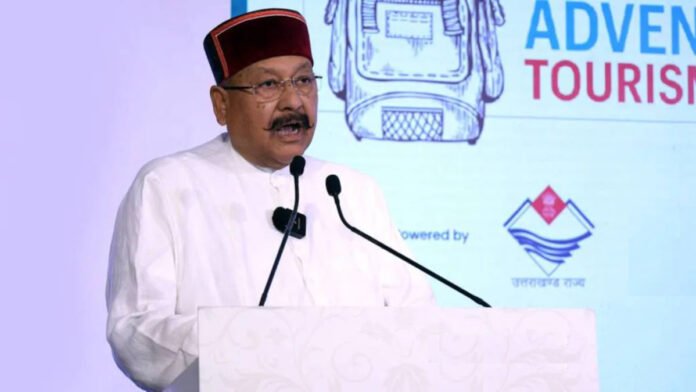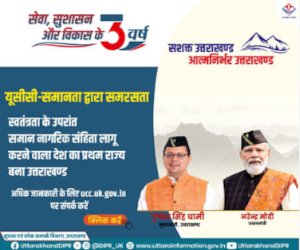Travel operators staged a demonstration in Haridwar on Thursday, protesting recent remarks by Uttarakhand Tourism Minister Satpal Maharaj. Under the banner of a local Travels Association, participants marched with placards and chanted slogans, alleging that the minister’s comments would disadvantage local operators and open the market to outside firms at their expense.
Our correspondent reports that protesters said their anger was triggered by the minister’s recent statement inviting travel companies from other states to open offices in Uttarakhand. According to the demonstrators, such a move could dilute opportunities for local agencies, many of which are still recovering from pandemic-era losses and the downturn caused by extreme weather in the state. They demanded that the minister withdraw his remarks and clarify the government’s position on prioritizing local enterprises.
Organizers added that they had initially planned to burn an effigy as part of the protest but proceeded only with sloganeering and a march after authorities declined permission. Police presence remained visible around key stretches near the protest route to manage crowds and ensure that traffic movement was not disrupted. The demonstration concluded with plans by association representatives to submit a memorandum to the district administration outlining their demands.
Our correspondent adds that several operators who joined the protest argued Uttarakhand’s tourism economy—built on pilgrimages, hill travel, and adventure tourism—relies heavily on local knowledge and seasonal livelihoods. They said aggressive entry by large out-of-state firms could leave smaller agencies struggling to compete on commissions and marketing budgets. Protesters also called for a level playing field in licensing, taxation, and tendering for transport and tour services.
Industry stakeholders said the flashpoint comes amid broader debates over tourism policy in the state. Over the past year, the government has floated changes aimed at strengthening regulation and curbing misuse of schemes. Travel businesses argue they support reform but want clear rules, predictable compliance timelines, and protections for small operators. They have sought structured consultations before any policy shifts that might affect margins or market access.
Our correspondent further reports that local hoteliers and transporters who expressed solidarity with the marchers said the travel trade acts as a backbone for thousands of indirect jobs—from drivers and guides to homestays, eateries, and shops that depend on tourist footfall. They urged the tourism department to publish a transparent roadmap that balances investment from outside players with safeguards for homegrown businesses.
At the time of publication, there was no new official statement from the minister’s office responding directly to the Haridwar protest. Tourism department officials have previously said that policy updates are being developed in consultation with stakeholders and that regulatory changes will be aimed at improving service standards, consumer protection, and sustainable growth. Trade bodies, meanwhile, have asked for a formal meeting with the minister to present their concerns and propose alternatives.
Our correspondent adds that the protest signals rising tensions within Uttarakhand’s travel ecosystem at the start of the festive and winter seasons, when operators traditionally bank on improved bookings. Association leaders said they will monitor government responses over the coming days and may escalate their campaign if they do not receive assurances that local businesses will remain central to the state’s tourism agenda.



























